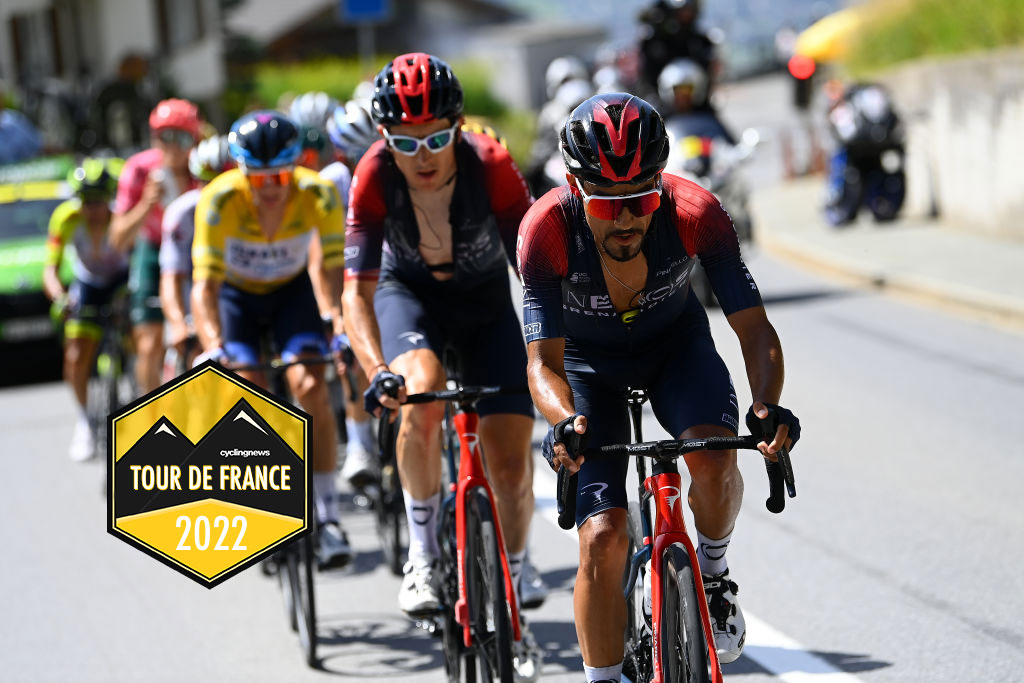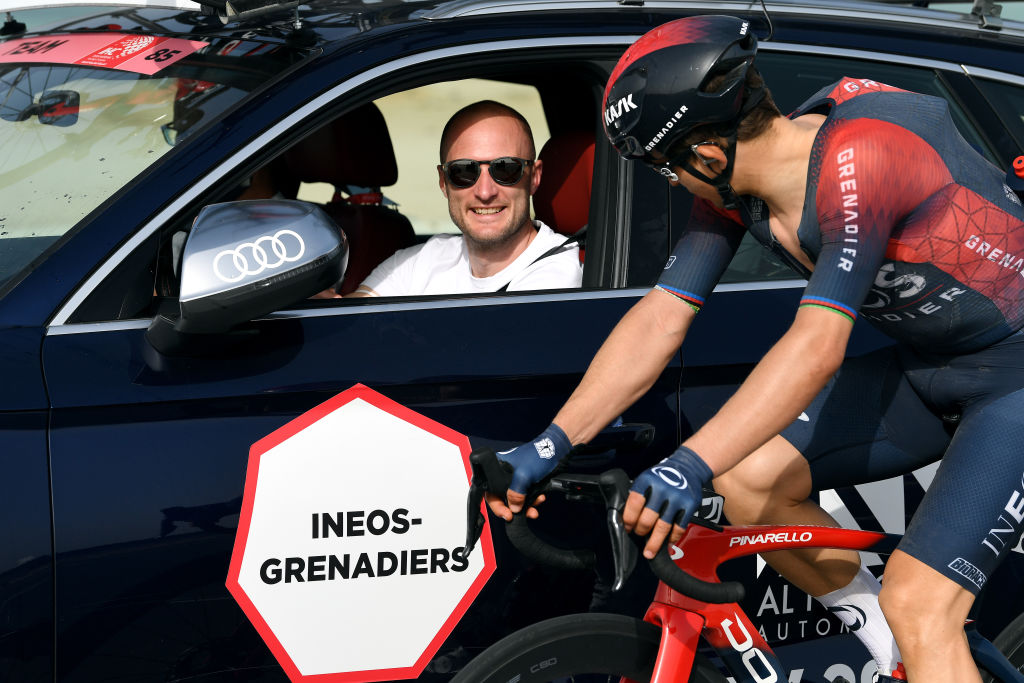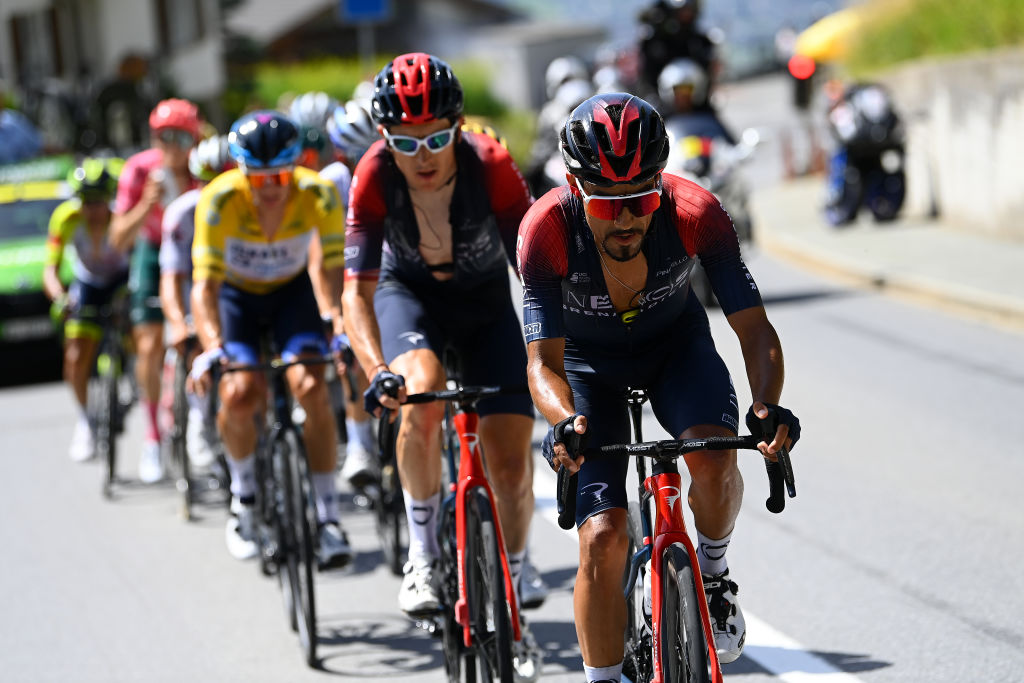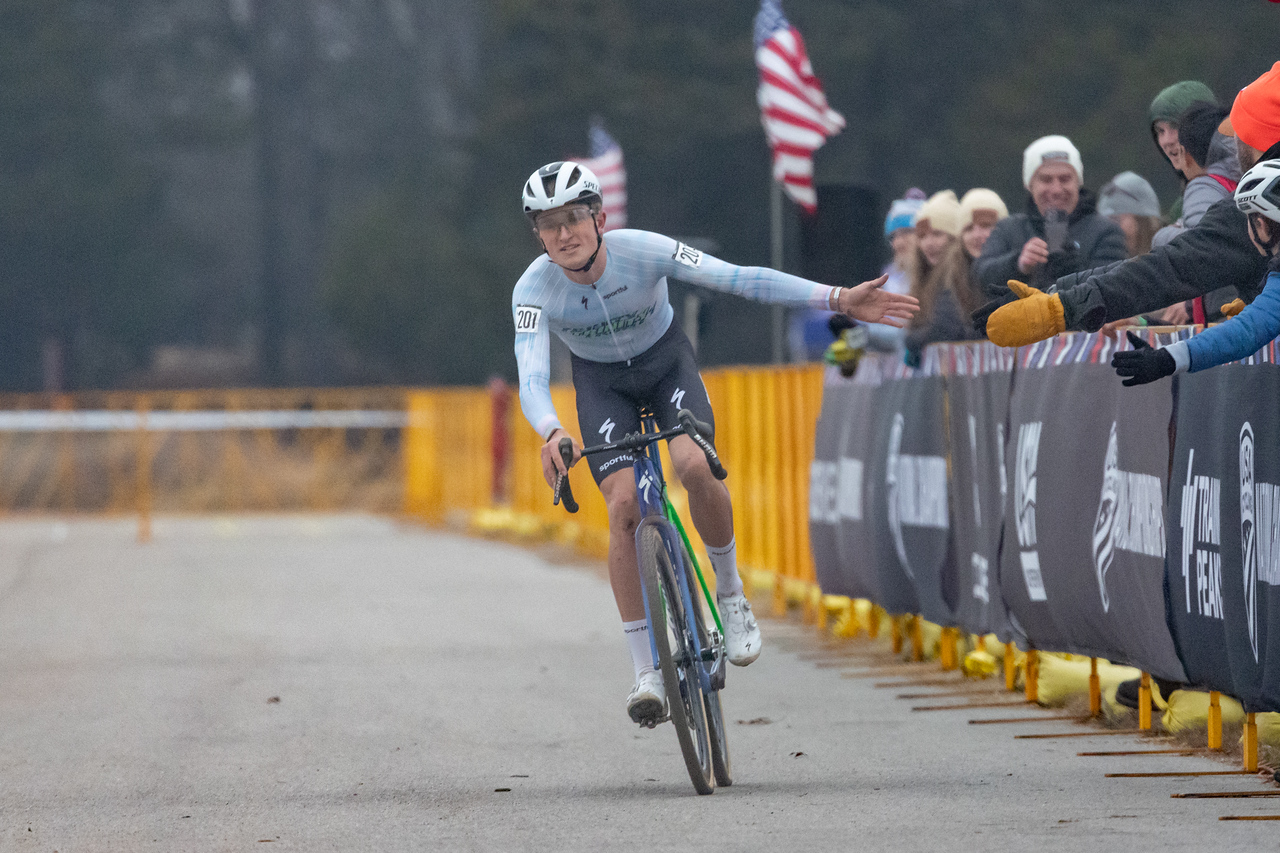Less responsibility, more opportunities – How Cummings has re-wired Ineos' Tour de France strategy
'We want to make waves right from the start' says team's new lead Tour de France director

Last year during the Volta a Catalunya, where Ineos Grenadiers scooped the top three spots overall and spent much of their time in the mountains relentlessly wiping out the opposition with a steady pace at the front of the bunch, 2018 Tour de France winner Geraint Thomas found himself experiencing a moment of nostalgia.
"It was a great team performance," he said after the British team had rolled back the years to practice their usual Grand Tour mountains strategy from 2012-2019 in the Pyrenees of Catalunya for a second straight day.
The only rider to remain in Sky/Ineos since it began, Thomas added, "There's loads been said about how we're racing different and this and that, but it’s good to have a bit of the old school and just stamp our authority on the race."
As it happens four of the riders present in that year's Volta a Catalunya – Thomas, Adam Yates, Jonathan Castroviejo and Luke Rowe – will also be racing the Tour de France this year. These days though, that kind of strategy is no longer automatically valid for Ineos Grenadiers in July.
After a near-decade of Tour success, their last win or indeed lead in the French race dates back to Egan Bernal in 2019. After 2020, Ineos Grenadiers were superseded as top favourites by the Slovenian duo of Tadej Pogačar and Primož Roglič, and if Richard Carapaz secured a respectable third place in the 2021 Tour, he never looked close to challenging the winner Pogačar – or Roglič's teammate and Tour runner-up, Jonas Vingegaard, for that matter
There was an implicit recognition of the changing of the guard in Ineos Grenadiers a year last winter when certain senior members of management suggested the team were going to adopt a more aggressive, open style of racing. It's fair to say that in 2021, sometimes that happened, sometimes it didn't.
Certainly when Ineos Grenadiers tended to revert to previous type in the Tour de France and began pace-setting the pack even when they were running third overall, it caused a fair amount of flak of the 'here-we-go-again' variety to be directed the British team's way.
The latest race content, interviews, features, reviews and expert buying guides, direct to your inbox!
So what to do this summer? As Ineos Grenadiers new lead Tour de France directeur sportif Steve Cummings tells Cyclingnews, the rewiring of the squad's strategies in all sorts of races has continued apace over the last few months. And after last July when they appeared to be unable to fully relinquish the racing strategies of old, that new approach will include the Tour.
"Any culture takes a little while to evolve, and they [Ineos Grenadiers] were doing something so effectively for a long time," Cummings, who joined the team in 2021, says.
"But now, not just in the Tour but in other races, we can race in other ways. It's pleasing on the eye, and the lads really enjoy it, and when they enjoy it, that's half the battle. But at the end of the day, the strategy, the tactics are defined by the riders' legs and how they're going, not by me."
Part of Cummings' new position as lead Tour de France director, he says, is "challenging the [previous] thinking, handling the evolution of the team culture if you like, where if you don't have the favourite of the race, you have less responsibility to control the race and you do have more opportunities.
"And that's it, you have to see that [lesser responsibility] as an opportunity."

Grabbing opportunities is something that Cummings excelled as a rider in the second half of his career when he became known as one of the top breakaways in the sport. By chance, it happens this year's Tour de France will revisit the two finishes where he has won stages himself.
In the second week the Tour reaches Mende airfield, the scene of Cummings' memorable summit victory against Thibaut Pinot and Romain Badet in 2015. "I haven't been back since then," Cummings says, "so it will be a bit strange, but good."
In the third, it passes through the Lac de Payolle where six years ago Cummings won after breaking away alone over the Aspin – this year the first Pyrenean ascent of the stage, as it was in 2016.
Cummings was never exceptionally talented at one particular area, but with a well-earned reputation for hard work and hard thought across the board. So it has its own inner logic that rather than one specific rider, Cummings points to the strength in depth that Ineos Grenadiers will once again bring to the Tour.
"I think we need to fight to win and if we can't win the GC, then we need to win multiple stages with the talent we have," he argues.
"To put it in perspective, probably the world would say, Roglič and Pogačar are the favourites, and looking at the results of over the past two years, I would agree.
"But [for the GC] we do have Dani [Martínez], who's been really, really good and he's just won the Itzulia this year, we have G, who just won the Tour Suisse, and also we have Adam.
"Adam might not have the results in 2022, but if you were to analyse his performances, they've been really good and he's got sick at difficult times. So I'm pretty optimistic."
Stage wins? The overall? both?
When Cummings says that Ineos Grenadiers are after stage wins, this isn't just a general observation. Bringing Filippo Ganna to make his Tour debut when it starts with a short time trial this Friday is a statement of intent in anyone's book. Or as Cummings puts it, "we want to make waves right from the start."
"He's definitely one of the favourites, he's the World Champion in that discipline, but I don't want to add extra pressure to what he's already feeling. Wout van Aert [Jumbo-Visma] is also very strong and there will be plenty of other contenders.
"But if Filippo concentrates on process and performance like he's done so many times before, then he should get the optimal result."
If Ganna is a set piece contender in a set piece battle such as the opening time trial, then at the other end of the spectrum for Ineos Grenadiers in their strategy for success this July is their other Tour debutant, Tom Pidcock.
"He's there to learn, experience his first Tour and explore his potential while seeing first-hand how the biggest riders in the world race in the biggest event in the world, " Cummings says.
"But apart from learning, he's got a role as a 'free electron', to take his chances where he can. Ineos haven't had a rider like that in the race for a long time, and it provides us with a different dynamic. Obviously we want to win, but at certain points, [a rider like Pidcock] will give us extra options to fight with as well."
The only caveat he adds is that Pidcock also has yet to find out whether a recent bout of COVID has a long-term effect.

In the centre of it all, though, are Ineos Grenadiers' protected riders and while last year the team went with four potential leaders – Tao Geoghegan Hart, Richie Porte, Thomas, and Carapaz – this year there are three: Thomas, Martínez, and Yates.
Which begs the question, is there really that much of a difference to 2021?
"This year's strategy a bit clearer," Cummings says. "I'm not sure if last year it was so clear. But the strategy doesn't define the race, it's riders' legs that define what happens, and last year they had some bad luck… Tao had a crash, G had a crash.
"This year it's been difficult because a rider like Egan [Bernal] is irreplaceable. But like I said, Dani's won Itzulia, G's won Suisse and we've got a good momentum going into the Tour. Everyone's clear we've got to help each other through the chaotic stages of the first week, and then after that but based on that part, we'll know what we're doing in the rest of the race."
As for the multi-leader approach, Cummings says, "I think we've been adopting this strategy all season with two leaders, but it's not like it's black and white. In this case we'd be wise to try and support three.
"The challenges are more about using the team in the right way, and people also understanding what each rider delivers on the road."
Although Adam Yates has often been underestimated as a time triallist, on paper, the first week of the Tour looks set to be one in which Thomas could shine, Cummings says.
It's not just the Welshman's track record against the clock, which includes winning the opening Tour de France time trial in Dusseldorf in 2017 or even his recent success in the Tour de Suisse where Thomas claimed the overall victory thanks to the final test against the clock.
Thomas' track record on the cobbles, both inside and out the Tour de France is also rock-solid. Even way back in 2010, he provided a rare moment of success for the British team when he placed second on the Roubaix stage and briefly took the best young rider's jersey. So stage 5 looks to be up his street as well.
What price domination?
Since then, Thomas – the only rider to remain on Sky's roster for all 12 years – has been witness to extraordinary moments of success in the Tour for the team, including his own. As Cummings agrees, that domination comes with a price tag, because it means a good year for the Ineos Grenadiers is bound to be weighed up mostly by what happens in July.
"Most teams are judged by that, aren't they?" he asks rhetorically. "It's the world's biggest annual sporting event. But it doesn't change what you do on a daily basis, you go out and deliver optimal performance with full strategy and full gas. Nothing changes except more attention it and keep doing what we've done so well in the past."
"The record is the record, and we shouldn't carry it round like baggage. We should embrace it because the management, the staff, they've been through that before. And as in everything, we have to evolve and that's what we're doing."
Cummings doesn't believe though, that Ineos Grenadiers should try and learn from their own past when they were dominating the Tour to work out how best to unseat the current top favourites. That, he says, would take them in the wrong direction in terms of attitude towards the Tour.
"We don't want to think about the opposition that much, we want to think more about how we want the race to go," he says, in a line straight out of his own textbook of unwritten rules as a breakaway specialist.
"But in any case, if you're not leading the race – and we might end up doing that - then that attitude gives you more opportunities, for sure."
As for how his own position as a lead director rather than a breakaway specialist and team worker has changed his time at the Tour, Cummings says with a chuckle, "I sleep less, for one thing."
Speaking more seriously, he adds, that his job is now, "to articulate the team's tactics and strategies each day, make sure everybody understands their roles, that we're racing optimistically, that the guys are motivated.
"We want to deliver, ultimately, the optimal performance, and if we do that, then the talent in the team is more than capable of winning, full stop.
"Finally whether that's the GC we'll see, but if not then we'll go for stages. But with the talent we've got, there's always going to be a GC component in the team. We're always going to fight for that."
Alasdair Fotheringham has been reporting on cycling since 1991. He has covered every Tour de France since 1992 bar one, as well as numerous other bike races of all shapes and sizes, ranging from the Olympic Games in 2008 to the now sadly defunct Subida a Urkiola hill climb in Spain. As well as working for Cyclingnews, he has also written for The Independent, The Guardian, ProCycling, The Express and Reuters.

